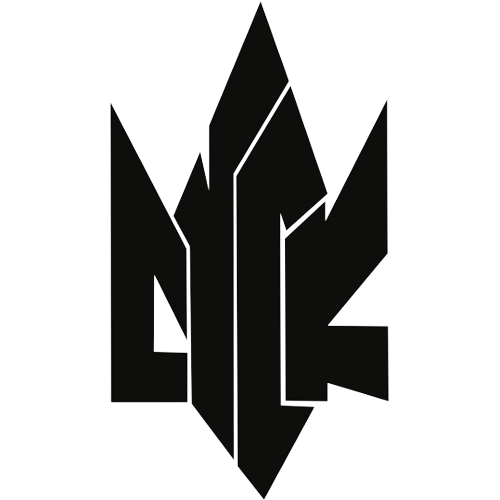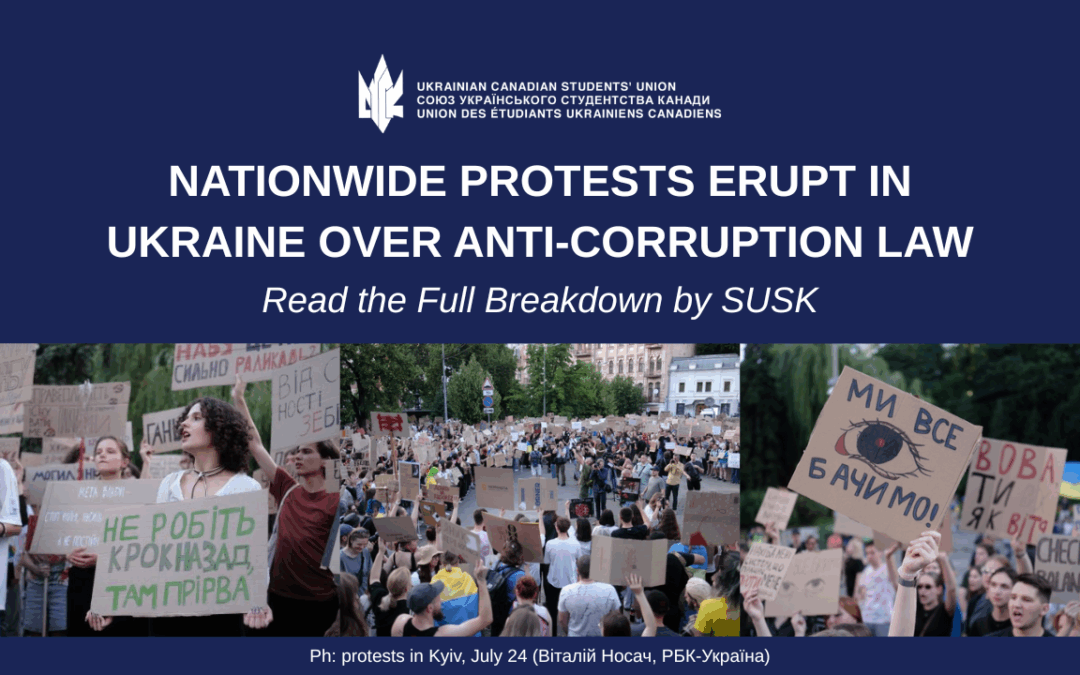Protests Erupt in Ukraine Over Anti-Corruption Agency Independence
In recent days, Ukraine has witnessed a wave of public protests and political unrest. This marks its most significant period of civil resistance since the full-scale invasion in 2022, sparked by a controversial law signed by President Volodymyr Zelensky. The recent law weakening the independence of Ukraine’s anti-corruption agencies has sparked alarm. Yet this crisis has also revealed something deeper: the enduring strength of Ukraine’s civil society. Even under martial law and ongoing Russian aggression, Ukrainians continue to demonstrate their unwavering commitment to democratic principles, the rule of law, and the country’s European path.
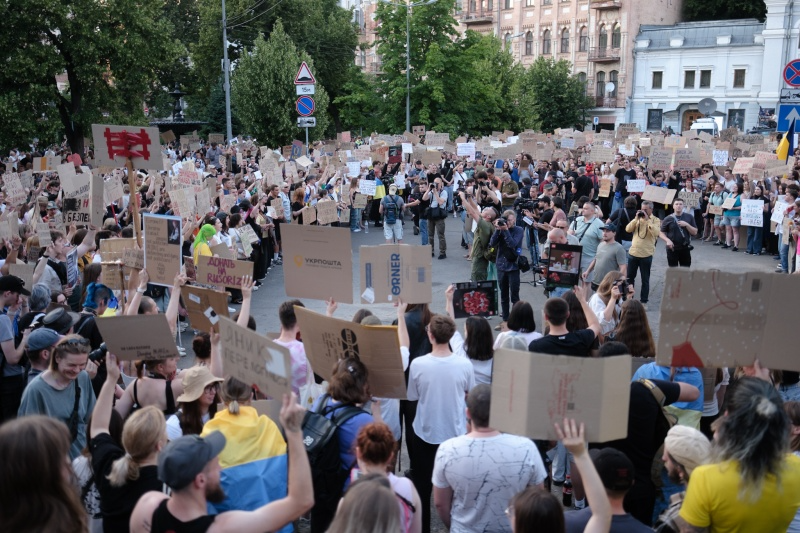
Віталій Носач, РБК-Україна
Background: Ukraine’s Anti-Corruption Reforms
Ukraine’s anti-corruption infrastructure was built following the 2014 Euromaidan revolution. In 2015, the National Anti-Corruption Bureau of Ukraine (NABU) and the Specialized Anti-Corruption Prosecutor’s Office were established as part of large-scale reforms aimed at reducing widespread corruption. The IMF, European Union and the United States had a significant impact on the creation of the agencies as a key condition for closer integration of Ukraine with Europe, including visa-free travel with the EU and vital financial assistance (“History of NABU”, n.d.). By design, NABU was created to operate independently of other organizations, conducting investigations against high-ranking politicians (“Objectives, values and principles of work”, n.d.). The idea is that legal mechanisms should protect it from political interference.
Over the years, NABU has investigated numerous corruption cases. Still, trust in the agency remains fragile, both among Ukrainians and international partners, due to persistent concerns about impunity and contradictions between its mandate and actual practice. Some Ukrainian critics argue that these agencies, formed under foreign pressure, undermine Ukraine’s sovereignty (Kulakevych, 2025).
Ukraine’s Anti-Corruption Reform
On July 22, 2025, the Parliament of Ukraine passed Bill No. 12414. This legislation strips NABU and SAPO of their independence by placing them under the direct control of the Prosecutor General, who is appointed by the President. The law grants the Prosecutor General broad authority, including the ability to issue binding orders to NABU, reassign or close investigations, and override prosecutorial decisions, which, as some warn, effectively turns these anti-corruption bodies into political tools. The bill was also pushed through parliament in a single day despite warnings from international allies (Bociurkiw, 2025). At the last minute, it was hastily attached to unrelated legislation. Opposition MPs called this process one of the most dishonest legislative processes in recent times.
The government justified the law on the grounds of national security claiming it would “purge anti-corruption agencies of Russian influence” (Brennan & Reevell, 2025). However, many experts view this explanation as insufficient to justify such sweeping changes.
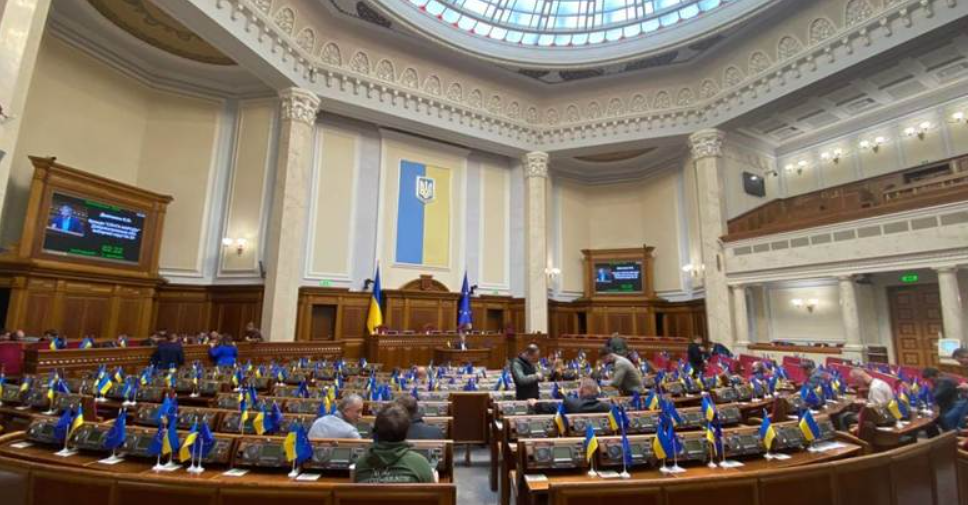
Верховна Рада України / © Ярослав Железняк / Facebook
International Alarm
The international reaction was immediate. European Commission President Ursula von der Leyen warned that the law undermines the rule of law and poses serious risk to Ukraine’s EU and NATO ambitions (Januta, 2025). U.S. officials from Donald Trump’s administration called this decision politically reckless and untimely (Januta, 2025). EU and OECD officials emphasized that undermining anti-corruption institutions could jeopardize Ukraine’s ability to attract foreign investment for defense and post-war reconstruction (Fornusek, 2025). Some analysts also warned that Ukraine’s visa-free regime with the EU could be at risk, pointing to Georgia as an example where weakening democratic institutions damaged ties with Europe (Stasiuk, 2025).
Public Outcry and Wartime Protests
At home, public outrage surged quickly. Just hours after the legislation was signed into law, crowds of citizens took to the streets of Kyiv, Lviv, Odessa, Dnipro and other cities as part of the first mass protests the country has experienced since Russia’s full-scale invasion in 2022 (Denisova, 2025). The demonstrators chanted “Hands off NABU!” and “Protect democratic institutions!” – a rare sight in a country at war, where martial law technically prohibits large gatherings. Yet thousands of people gathered in Kyiv, despite the night curfew and Russian airstrikes. Many of the protesters leading the activism were young people, students and war veterans who see their future in a democratic, honest, transparent, successful, European Ukraine.
Later, protests took place in other cities, covering 14 agglomerations, in particular oblast centers. (Gulayeva, 2025).
Government Response and Path Forward
Faced with mounting pressure at home and abroad, President Volodymyr Zelensky acknowledged the concerns of the public and acted rather quickly calling an emergency meeting on July 23 with the heads of the NABU, SAP, SBU (the security agency) and the Prosecutor General’s Office (Vialko, 2025). That evening, he pledged to introduce new legislature restoring the independence of anti-corruption bodies (Hodunova & Zadorozhnyy, 2025).
The Verkhovna Rada was scheduled to reconvene the following day to address the backlash surrounding the newly adopted legislation. Opposition MP Yaroslav Zheleznyak confirmed that lawmakers would meet to “repeal corruption regulations” (Lanchukovska, 2025). Civil society groups also began drafting alternative proposals. These rapid steps suggest that the Ukrainian leadership is responding to public and international pressure.
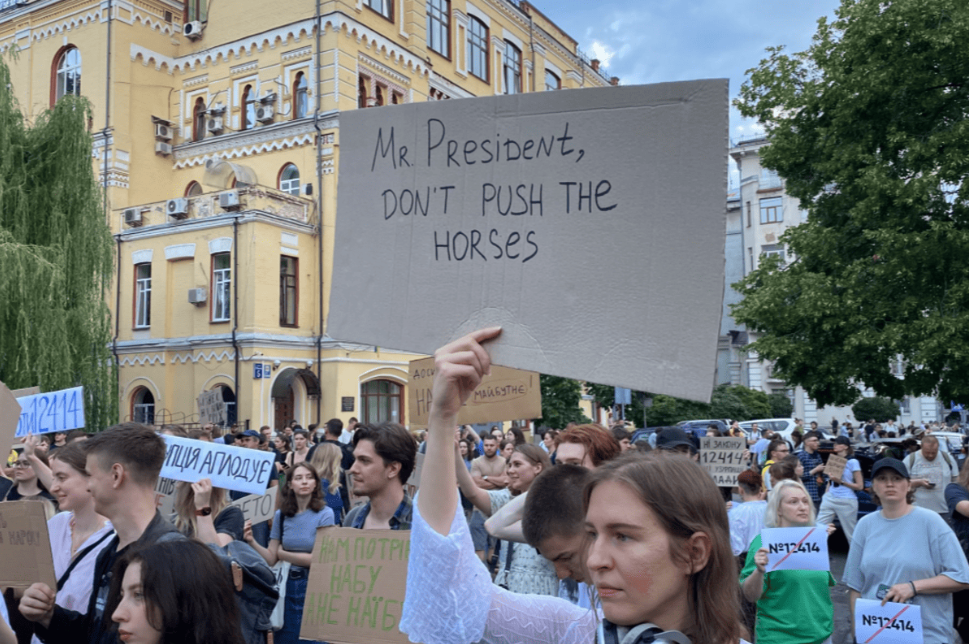
@Zjoma/Х
Conclusion
In the context of Russia’s ongoing war against Ukraine, the negative reaction to recent anti-corruption reforms highlights another vital struggle – for justice and democratic governance. The public reaction shows that Ukrainians will not accept a return to non-transparent politics, which is very different from, for example, Belarus or Russia. Even under martial law, thousands of people, especially young people, took to the streets to defend democratic values.
This moment also opens up opportunities for Russian propaganda to spread disinformation and weaken international support. But cutting military or economic aid would harm ordinary Ukrainians, not officials, and reward disinformation efforts. Instead, the world should continue to participate: support independent Ukrainian media, verify facts, and support organizations that are trusted to provide assistance.
President Zelensky’s promise to restore the independence of anti-corruption agencies opens the way forward. If the Rada fulfills its promise, this crisis could strengthen Ukraine’s democratic foundations. Ultimately, Ukraine’s strength lies not only in its army or in the size of its population, but also in its people’s commitment to justice, transparency, and a European future.
Written by SUSK Summer Intern – Daniil Zhelezniak (Saint Mary’s University)
Edited by SUSK President – Daria Furtak (University of Ottawa)
REFERENCES
Bociurkiw, M. (2025, July 22). Power Consolidated, Oversight Crushed: Zelensky Moves Against Anti-Corruption Bodies. World Briefing. Retrieved from: https://www.michaelbociurkiw.com/p/power-consolidated-oversight-crushed
Brennan, D. & Reevell, P. (2025, July 24). Zelenskyy urges ‘national unity’ amid Ukraine anti-corruption protests. ABC News.Retrieved from https://abcnews.go.com/International/zelenskyy-urges-national-unity-amid-ukraine-anti-corruption/story?id=124025210
Denisova, K. (2025, July 23). ‘We know how to stand up for our rights’ — Ukrainians protest law threatening anti-corruption institutions. The Kyiv Independent. Retrieved from: https://kyivindependent.com/we-know-how-to-stand-up-for-our-rights-ukrainians-protest-law-threatening-anti-corruption-institutions/
Gulayeva, O. (2025, July 23). “12414 f*ck off”: Ukrainian defenders on front line on scandalous law against NABU and SAPO. PHOTO. CENSOR.NET. Retrieved from https://censor.net/en/photonews/3564835/nabu-and-sapo-law-afu-soldiers-on-the-front-line-react
Harding, L. (2025, July 23). Zelenskyy defends bill stripping anti-corruption bodies’ independence amid protests. The Guardian. Retrieved from https://www.theguardian.com/world/2025/jul/22/zelenskyy-approves-bill-weakening-anti-corruption-bodies-despite-big-protests
Fornusek, M. (2025, July 23). OECD warns Ukraine’s anti-corruption agencies law threatens foreign investment, media reports. The Kyiv Independent. Retrieved from https://kyivindependent.com/oecd-warns-ukraines-anti-corruption-agencies-law-could-undermine-defense-investments-media-reports/
History of NABU. (n.d.). National Anti-Corruption Bureau of Ukraine. Retrieved from: https://nabu.gov.ua/en/about-the-bureau/struktura-ta-kerivnitctvo/istoriya-stanovlennya/
Hodunova, K & Zadorozhnyy, T. (2025, July 24). Zelensky submits new bill restoring anti-graft agencies’ independence after protests. The Kyiv Independent. Retrieved from: https://kyivindependent.com/48-lawmakers-from-various-factions-registering-bill-to-safeguard-independence-of-anti-corruption-bodies/
Januta, A. (2025, July 23). Marjorie Taylor Greene is spreading lies about Ukraine’s protests. Russia is taking note. Yahoo News. Retrieved from https://www.yahoo.com/news/articles/marjorie-taylor-greene-spreading-lies-191844122.html
Kulakevych, N. (2025, July 24). Russian influence or a planned destruction of anti-corruption institutions? What really happened with the scandalous NABU and SAP law. Slidstvo Info. Retrieved from: https://www.slidstvo.info/articles/vplyv-rosii-chy-planovane-nyshchennia-antykoruptsinykh-instytutsiy-shcho-naspravdi-vidbuvalosia-zi-skandalnym-zakonom-pro-nabu-ta-sap/
Lanchukovska, T. (2025, July 24). The Rada has registered a draft law that should restore the independence of the NABU and the SAP. LIGA.net. Retrieved from https://news.liga.net/en/politics/news/draft-law-to-restore-independence-to-nabu-and-sapo-registered-in-the-rada
Liboreiro, J. (2025, July 23). Von der Leyen calls Zelenskyy and asks him to explain new anti-corruption law. Euronews. Retrieved from: https://www.euronews.com/my-europe/2025/07/23/von-der-leyen-calls-zelenskyy-and-asks-him-to-explain-new-anti-corruption-law
Miller, C. (2025, July 22). Zelenskyy moves against Ukraine’s independent anti-corruption bodies. Financial Times. Retrieved from https://www.ft.com/content/21cf3d32-8cc3-4ed1-bfb2-d2b9de88f19d
Objectives, values and principles of work. (n.d.). National Anti-Corruption Bureau of Ukraine. Retrieved from: https://nabu.gov.ua/en/about-the-bureau/zasadi-roboti/zmist-ta-pryncypy-diyalnosti/
Stasiuk, Y. (2025, July 17). Georgian leader scoffs at EU threat to visa-free travel. Politico. Retrieved from https://www.politico.eu/article/georgia-eu-visa-free-travel-ultimatum-democracy-foreign-influence-sanctions-irakli-kobakhidze/
Vialko, D. (2025, July 23). Zelenskyy meets with law enforcement and anti-corruption chiefs after protests. RBC-Ukraine. Retrieved from: https://newsukraine.rbc.ua/news/zelenskyy-meets-law-enforcement-and-anti-1753265248.html
